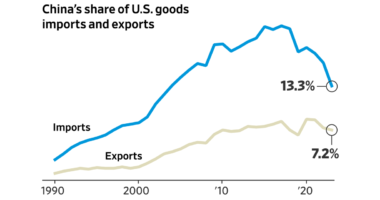
HONG KONG—Apple Daily, Hong Kong’s defiant pro-democracy newspaper that drew the ire of China’s leaders, said it would print its final issue Thursday, ending an era of unfettered reporting critical of Beijing in the city’s mainstream print scene.
The 26-year-old newspaper, which is majority owned by jailed Beijing critic Jimmy Lai, has come under immense pressure from Hong Kong authorities, who in the past week froze company assets, seized journalists’ computers and charged two of its top executives under a national-security law that was imposed by Beijing last year to crush dissent in the city.
Apple Daily reported that its management decided to run its last print edition Thursday and stop updating its website after midnight on Wednesday, citing employee safety and staffing considerations. Some of the hundreds of journalists who would have lost their jobs had quit in recent days and weeks, concerned about their security and the precarious position of their employer.
“The era of free political speech as we have long known it is gone,” said Sharron Fast, a journalism lecturer at the University of Hong Kong, who noted recent moves to censor books, art and movies in the city. “The loss of Apple at this point almost feels like we are at the brink of collapse. And it is natural for this loss to be profoundly felt in the city.”
Journalist groups and some foreign governments have criticized Hong Kong authorities for targeting Apple Daily, saying they have undermined press freedom in the former British colony and sent a chill through the industry. Authorities have turned their attention to the media after purging opposition groups from the city’s political scene, ending street protests and jailing pro-democracy activists.
Hong Kong officials allege Apple Daily used news as a tool to challenge China’s national security and police charged two executives, including its editor in chief Ryan Law, with conspiring to collude with foreign forces. The accusations center on more than 30 articles published since 2019 that authorities say played a part in a conspiracy to get foreign entities to impose sanctions on Hong Kong and China.
On Wednesday, police arrested an opinion writer from the paper, adding to fears that individual authors, not just newsroom executives, could be caught up in the national-security crackdown.
Apple Daily founder Mr. Lai, a refugee turned clothing tycoon, has also been a top target of the national-security police. He is currently in jail for participating in protests and is awaiting trial on national-security charges.
Founded in 1995, two years before the U.K. handed the city back to China, Apple Daily and its sister Next Magazine rocketed to become among the city’s most widely read publications with a mix of tabloid-style gossip, local news, investigations and aggressive political reporting on Hong Kong and China’s ruling Communist Party.
As many media rivals shifted politically toward Beijing—some under new owners with ties to the mainland—Apple Daily became more outspoken in pushing for democracy. It aligned itself with many in the city of 7.5 million who supported opposition parties and opposed China’s increasing control over the city.
In 2019, when mass antigovernment protests rocked the city, Apple Daily used its front page to call on people to join marches. Its newsroom at the time was decorated with protest-related posters and memorabilia.
An editorial published Wednesday by Ming Pao, another major daily newspaper, faulted Apple Daily for engaging in acts of political mobilization that had set it apart from regular news outlets. “When a media organization becomes a tool for political struggle and deviates from the conventional code of conduct, there are bound to be complications,” it wrote.
Even as it wound up in the firing line, Apple Daily continued with its unapologetic tone and wrote critically about authorities’ crackdown on dissent. After the arrest of its executives last week, it printed about 500,000 copies that were quickly snapped up by supporters.
“The company thanks our readers for their loyal support and our journalists, staff and advertisers for their commitment over the past 26 years,” Next Digital Ltd. said.
Late Wednesday, as staffers put together the newspaper’s final edition, dozens of supporters gathered in the rain outside Apple Daily’s five-story headquarters. They chanted, “Support you till the end!” and some workers inside the building thanked them by waving their cellphone torchlights.
Those who had completed their last assignments took photos throughout the building to preserve its memory.
As Apple’s fate became clearer throughout the week, reporters had prepared for the worst.
At the end of a weekly press conference on Tuesday held by Hong Kong’s top local official, Carrie Lam, one Apple Daily reporter asked her: “You said the national-security law will only affect a small number of people, but more than 800 people in my company will be forced to lose their jobs. Can you respond, Mrs. Lam?”
She walked away without answering.
Write to Elaine Yu at [email protected]
Copyright ©2020 Dow Jones & Company, Inc. All Rights Reserved. 87990cbe856818d5eddac44c7b1cdeb8









